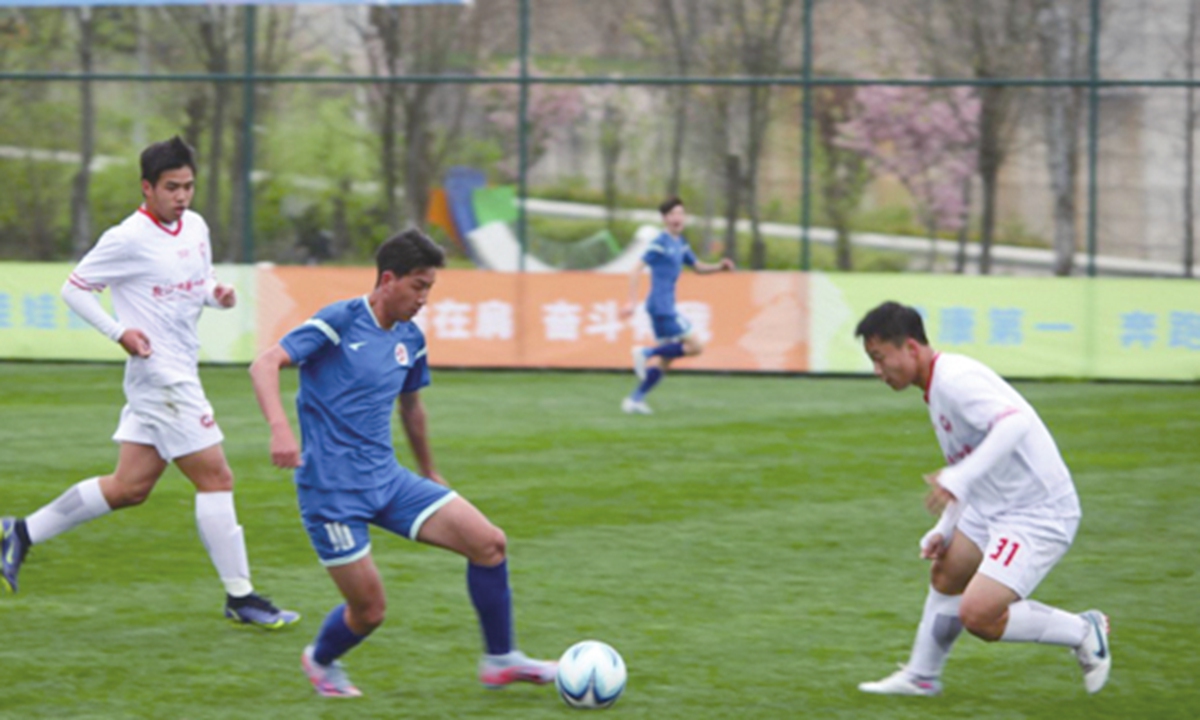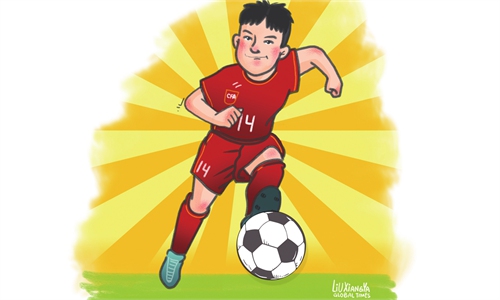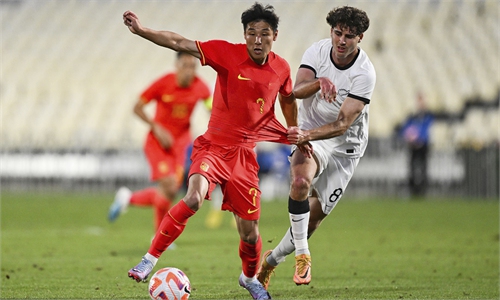ARTS / CULTURE & LEISURE
Record number of youth teams vital to boost soccer influence across country

Players compete in the Chinese national youth soccer league. Photo: Courtesy of the Chinese Football Association
The national youth soccer league is in full swing, with a record-breaking 200 plus teams competing in the under-17 division, an increase from 152 teams in 2022.
Initiated in July 2022, the youth league has not set a barrier for registrations this season, thus making amateur teams able to compete with young players from professional clubs in the preliminary round.
To strengthen China's soccer development, it is vital to have more young people to know the sport and enjoy watching and playing it.
Though these grassroots players are unlikely to soon make it onto the national under-17 team, which is preparing for the Under-17 Asian Cup - scheduled to be held in Thailand from June 15 to July 2 - domestic games can help them hone their skills so they can do more than simply relying on their natural talent.
Some of the national youth league games are being held inside a school campus, as is the case at Duyun No.1 Middle School in Southwest China's Guizhou Province in the under-17 division. Hosting soccer games inside a campus can boost the influence of the game as they are sure to attract other students to come watch and cheer, thus boosting players' morale.
Professional soccer athletes winning competitions are considered the major drive to develop enthusiasm for soccer in the country, but having grassroots level soccer is vital to expand the talent pool for Chinese soccer.
The league not only features under-17 matches, but also includes under-13, under-15 and under-19 games. Besides the boys competitions, girls competitions are also underway.
Moreover, an invitational soccer tournament, the Haisi Cup, is expected to be held in Fuzhou, capital of East China's Fujian Province, from July 10 to 18.
The event, named after the Chinese abbreviation for the Maritime Silk Road, will invite 32 teams from China and countries and regions along the Maritime Silk Road to play.
Compared to European soccer powerhouses, China's professional leagues have only three levels, with the amateur league yet to reach full-fledged status: Not every provincial-level administration has established its own league.
But the situation is starting to change.
Dozens of cities have been shortlisted as key cities for national soccer development, including Beijing, Shanghai and Guangzhou, with youth soccer among the priorities.
It is expected that at least one city-level and six district-level youth soccer training centers will be established in each key city. A national-level youth soccer training center is also expected to be established by 2025.


